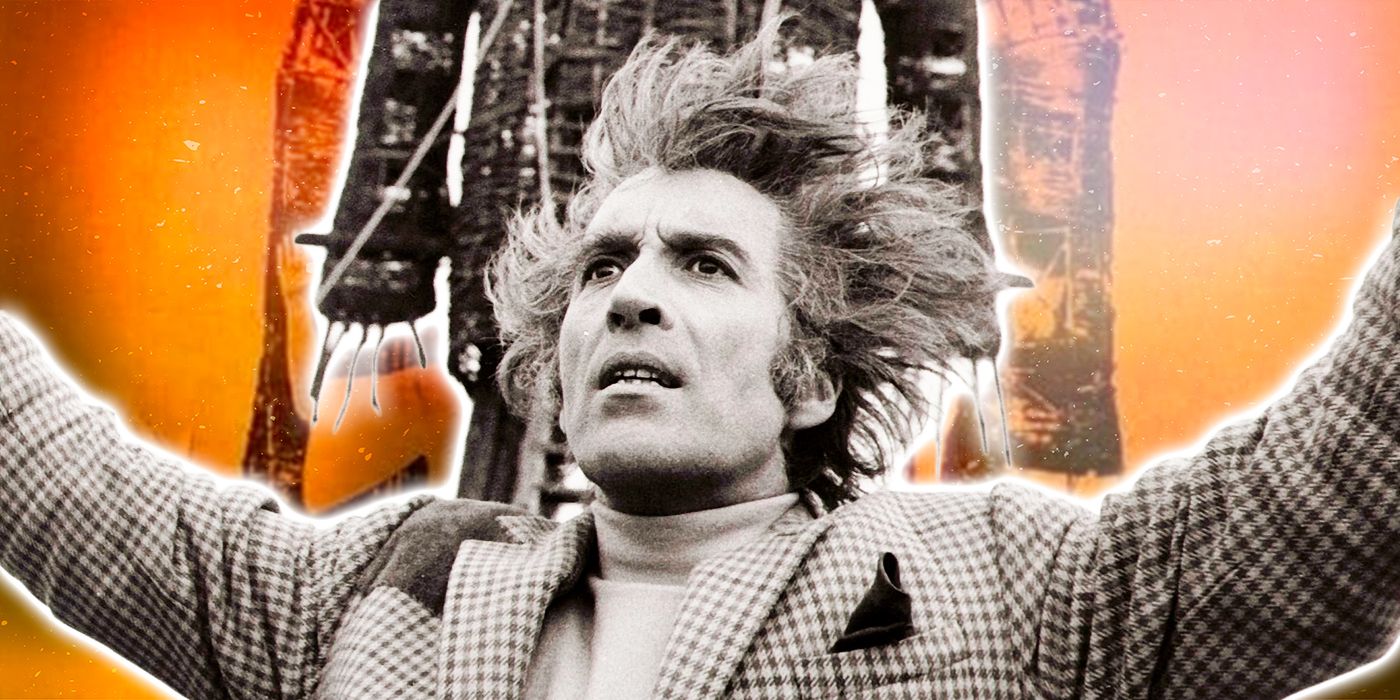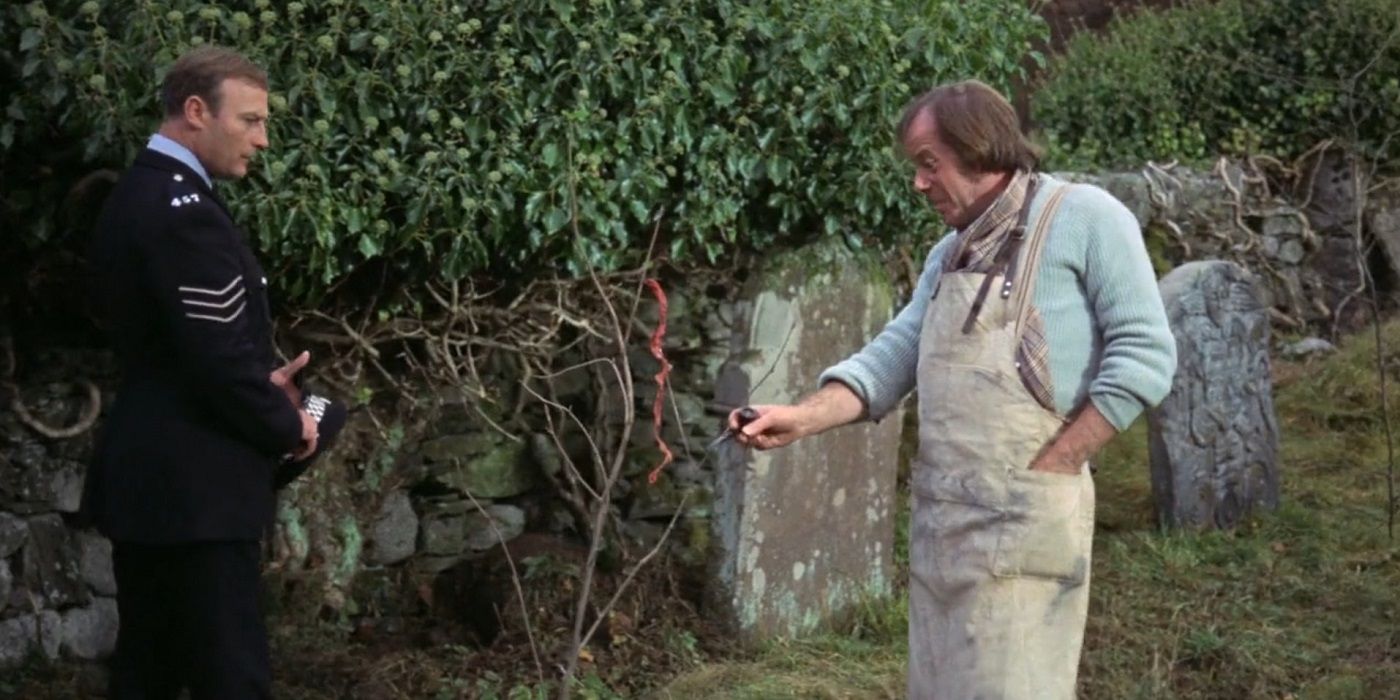
As a horror fan, I’ve always loved the 70s – it felt like such a turning point for the genre. It wasn’t just about monsters and jump scares anymore; filmmakers started digging into deeper, more unsettling themes and really thinking about what *scared* people on a psychological level. That’s when you started seeing these fascinating new subgenres pop up, and one of the coolest was folk horror. It really tapped into the creepiness of old traditions and the feeling of being completely cut off from the world. A prime example, and one of the first films really labeled as ‘folk horror,’ was 1973’s *The Wicker Man*. And it starred Christopher Lee, who, of course, was already a legend thanks to Dracula. But *The Wicker Man* was something totally different for him. He was actually frustrated with being typecast and considered this film his passion project – so much so that he even worked on it for free! He really believed it was the most important role of his career.
While it wasn’t as immediately popular as horror hits like *The Exorcist* and *The Texas Chain Saw Massacre*, *The Wicker Man* has become a key example of folk horror over time. Unlike typical horror movies that clearly pit good against evil, *The Wicker Man* presents a conflict between different belief systems, creating tension through their unwavering perspectives. The film avoids jump scares and focuses on building a disturbing atmosphere that emphasizes the differences between its characters. Today, critics and fans recognize *The Wicker Man* – alongside films like *The Blood on Satan’s Claw* – as a groundbreaking work that established many of the tropes now seen in modern folk horror films such as *Hereditary* and *Midsommar*.
Christopher Lee Loved The Wicker Man
The 1973 film *The Wicker Man* drew inspiration from David Pinner’s 1967 novel *Ritual*. Christopher Lee, a fan of the book, suggested it to screenwriter Anthony Shaffer, and the three of them – Lee, Shaffer, and producer Peter Snell – pooled their money to buy the rights to adapt it. Shaffer initially struggled to translate Pinner’s novel into a screenplay and returned their investment. He then decided to use the book as a starting point, blending it with Celtic folklore and material from James Frazer’s *The Golden Bough*. While Shaffer wrote a completely new script, he kept some core ideas from Pinner’s original story at Lee’s request. Despite these changes, Pinner was disappointed with the final film, feeling that many of his concepts were used without sufficient acknowledgement.
Christopher Lee was incredibly passionate about getting the film made and even worked without pay because he believed it offered a unique and important perspective within the horror genre. The story focuses on a devoutly religious man who finds himself in a world with vastly different and disturbing beliefs. Edward Woodward, who later starred in *The Equalizer* and *Hot Fuzz*, plays Sergeant Howie, a very religious and morally strict police officer. He travels to the Scottish island of Summerisle to investigate the disappearance of a young girl named Rowan Morrison after receiving an anonymous letter. However, as soon as he arrives, the locals deny any knowledge and actively hinder his investigation.
The story begins with the unexplained disappearance of Rowan and the villagers’ refusal to help Howie investigate. Instead of relying on typical horror movie scares, *The Wicker Man* builds tension by highlighting the clash between Howie’s beliefs and the pagan customs of Summerisle. He grows increasingly disturbed by their strange traditions and starts to believe Rowan is still alive and in danger. The film takes the basic idea of a detective story and layers it with deeper meaning. As Howie becomes more and more uneasy with the islanders’ rituals, he loses his sense of control. He’s told Rowan is buried in a local cemetery, but when he tries to mark the grave with a cross, the villagers ridicule him and dismiss his gesture. With permission from Lord Summerisle, played by Christopher Lee, to open the coffin, Howie shockingly finds a rabbit inside instead of a body.
Howie’s initial meeting with Lord Summerisle perfectly highlights the clash between his rational, modern beliefs and the pagan worldview of the islanders. This encounter embodies the core themes of folk horror, presenting a fundamental conflict between two irreconcilable perspectives. Despite Howie’s confidence as a police officer, Lord Summerisle quickly establishes dominance. While Howie finds the islanders’ customs disturbing, he’s surprised by Lord Summerisle’s articulate defense of them, which subtly exposes the flaws in Howie’s own beliefs. The conversation appears polite at first, but a subtle threat underlies Lord Summerisle’s dismissive attitude towards Howie’s religion. Through this meeting, both Howie and the audience realize that a peaceful resolution is impossible, and they are destined to be adversaries.
The Wicker Man Has One of the Best Twist Endings
Sergeant Howie’s search for the missing girl culminates in a shocking twist, considered one of the greatest in horror films. The people of Lord Summerisle deliberately lured Howie into the investigation because of their ancient pagan traditions, firmly establishing the film as a classic of folk horror. Throughout the story, the villagers mislead Howie, never directly confirming or denying the girl’s fate, and instead using confusing answers to throw him off track. As the film unfolds, Howie thinks he’s making progress, but he’s actually being drawn further into a carefully laid trap.
Howie discovers the previous year’s harvest on Summerisle failed, but he doesn’t realize how significant this is to what’s happening to him. He first sees it as a farming issue, then assumes it’s a punishment from the gods for the islanders’ pagan religion. This belief prevents him from understanding that he’s being set up. While his faith reinforces his own conclusions, his failure to understand the island’s culture seals his fate. For the people of Summerisle, the failed harvest is a matter of survival, and they believe the only solution is to satisfy their gods through traditional practices.
As the movie *The Wicker Man* reaches its climax, Howie discovers he embodies all the qualities the islanders need for their ultimate sacrifice. Morgan Rowan wasn’t missing at all – she was part of a plan to lure him to Summerisle. He willingly came to investigate a disappearance, fulfilling one requirement of the ritual. His profession as a police officer provides him with the symbolic “power of a king,” another key element. Howie also reveals he’s a virgin, saving himself for marriage, which aligns with their needs. Finally, his constant misdirection and errors during the investigation make him the perfect “fool” figure for the ceremony.
The true horror of the film begins when the mystery is solved. The terrifying threat isn’t a single monster, but an entire community that appears welcoming. Just when Sergeant Howie thinks he’s about to understand what’s happening, it’s revealed the villagers have been manipulating him. What started as a search and rescue operation turns out to be an inescapable trap. This clever shift from a police procedural to folk horror is what makes *The Wicker Man* so unique and unsettling.
The Wicker Man Influences Films to This Day
Unlike typical horror films that rely on monsters or the supernatural, *The Wicker Man* presents a deliberate and carefully executed evil carried out by the seemingly friendly villagers of Summerisle. The film’s horror stems from the conflict between modern beliefs and the traditions of the past. Like the film’s protagonist, Sergeant Howie, audiences are challenged to consider questions about faith and what is right or wrong. *The Wicker Man* isn’t just a scary movie or a mystery; it’s also a commentary on society.
The film *The Wicker Man* is a cornerstone of the folk horror genre, inspiring movies made today. Director Ari Aster specifically credits it as a major influence, and its techniques are still widely used. The film expertly creates a sense of dread through its setting, the behavior of its community, and the main character’s growing understanding of the danger he faces. Like *The Wicker Man*, Ari Aster’s films delve into themes of isolation and how deeply held beliefs can be challenged.
Read More
- Five Nights At Freddy’s 2 Review: The Video Game Movie Sequel Limbos Under The Low Bar Set By The First Film
- ‘And Then The Chesty One Comes In.’ SNL’s Cut For Time Sketch Hilariously Reimagined Sydney Sweeney And Zendaya’s Euphoria
- Black Phone 2 Ending & Grabber’s Fate Explained
- George Clooney Has The Best Reaction To The Viral Louvre Heist Following Ocean’s Eleven Comparison
- Прогноз криптовалюты USD1: прогнозы цены USD1
- Прогноз криптовалюты BNB: прогнозы цены BNB
- Jenna Ortega Went Punk Rock With Her Latest Goth Wednesday Look, And I Can’t Get Over The Back Cutouts
- The Rising of the Shield Hero Season 4 Episode 4 Release Date, Time, Where to Watch
- Disney Confirms Next Marvel & Star Wars Announcement Showcase For 2025
- Star Trek’s Smartest TNG Episode Is the Best Time-Travel Story in Sci-Fi TV History
2025-10-10 00:08
